Is My Crypto Protected on Coinbase?
Note: This post may contain affiliate links, and we may earn a commission (with No additional cost for you) if you purchase via our link. See our disclosure for more info. The gold and crypto world is constantly changing. This is not financial, investment, legal, or professional advice. So, please verify the information on the gold and cryptocurrency provider’s websites.
Crypto on Coinbase? Well, it has some protection, but don't count on it being foolproof. Users need to keep their private keys safe—good luck with that. Strong passwords and two-step verification are a must, but many skip those. Sure, there are alerts for suspicious transactions, but users must stay on high alert against scams. And remember: non-custodial wallets have zero coverage. If you want the nitty-gritty on what that means, stick around.
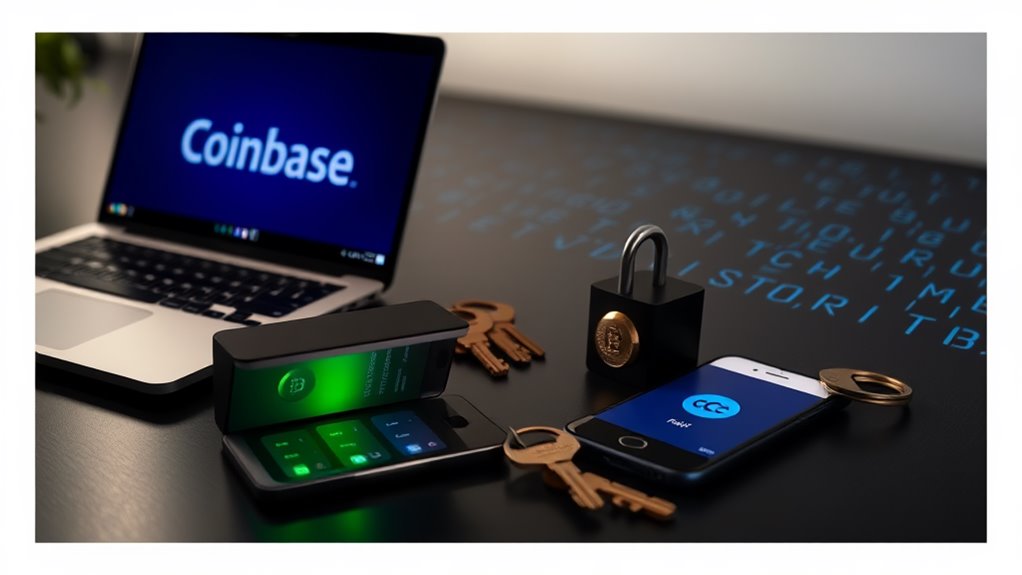
Is your crypto really safe on Coinbase? That's the million-dollar question, isn't it? For many, Coinbase is like the gateway to the crypto universe. But how well does it actually protect your digital assets? Let's break it down.
First off, Coinbase offers a self-custody option through its Coinbase Wallet. This means you hold the keys, not them. Sounds great, right? But it also means you're responsible for keeping them safe. They throw in some nifty features like biometric security, password protection, and hardware wallet integration for extra peace of mind.
Still, the onus is on you to keep your private keys secure.
The responsibility for safeguarding your private keys ultimately rests with you.
Then there's account security. Coinbase suggests strong passwords and two-step verification. Good advice, but let's face it — a lot of users skip this stuff. Implementing two-factor authentication (2FA) provides critical protection against unauthorized access even if your password is compromised. They also mention device protection and email security. Sure, it's nice that they care, but are users really paying attention?
Remember, your crypto's safety depends on how seriously you take these measures.
Now onto transactions. Coinbase attempts to keep things transparent with alerts for token approvals and transaction previews. They even have a blocklist for dubious dapps. But don't get too comfy; users still need to be vigilant against phishing scams and SIM-swap attacks.
It's a jungle out there!
Coinbase also has an account protection policy. It covers certain losses, but don't get your hopes too high—non-custodial wallets aren't included. So, if you're managing your own coins, you might be out of luck.
And let's not forget insurance. They have crime insurance, but it doesn't cover personal account breaches. Plus, cash is stored where it's FDIC insured. That's a small win, right?
In the end, Coinbase does offer a range of protections, but the question remains: how much do you trust them—and yourself—to keep your crypto safe?
Frequently Asked Questions
What Measures Does Coinbase Take Against Hacking Attempts?
Coinbase takes hacking attempts seriously. They use AES-256 encryption for data and private keys.
Most assets? Stashed offline like a squirrel hoarding nuts. Two-factor authentication is mandatory—no shortcuts here. They even have biometric checks.
And let's not forget the fancy tech, like Multi-Party Computation, keeping those private keys safe.
Regulatory measures? They've got licenses in multiple regions and monitor for suspicious activity 24/7.
Seriously, they've got layers upon layers of security.
Can I Transfer My Crypto to an External Wallet?
Absolutely, transferring crypto to an external wallet is a thing. Just select the asset, input the address, and hit send. Simple, right?
But don't forget, ERC-20 tokens need ETH for those pesky gas fees. And hey, double-check that wallet address—typos can lead to a one-way trip for your funds.
Sure, Coinbase won't charge you for the transfer, but the network fees? They can be brutal. So, buckle up!
Does Coinbase Offer Insurance for Crypto Assets?
Coinbase does offer some insurance for crypto assets. They've got a whopping $255 million hot wallet insurance policy, covering things like hacking and insider theft.
But hold on! If you fall for a phishing scam, tough luck—no coverage there. And if a network attack happens? Not their problem.
How Does Coinbase Handle Account Recovery?
Coinbase's account recovery? It's a whole process.
First, forget about instant access. Users must jump through hoops—like verifying identity and updating two-factor authentication.
Got locked out? Prepare for a 48-72 hour wait. Even then, sending funds is off-limits for a full day.
Security checks are a must. If suspicious activity flagged the account, expect extra scrutiny.
It's a tedious dance, but hey, security first, right?
Are There Limits on Crypto Withdrawals From Coinbase?
Yes, there are limits on crypto withdrawals from Coinbase. Daily limits exist, and users must jump through hoops to request increases.
The method of cashing out matters too—bank transfers versus other options can change everything. Higher account verification levels? They grant access to bigger limits, but good luck if your account gets flagged for suspicious activity.
It's a game of patience, with potential delays in support when things get busy. Welcome to crypto chaos!

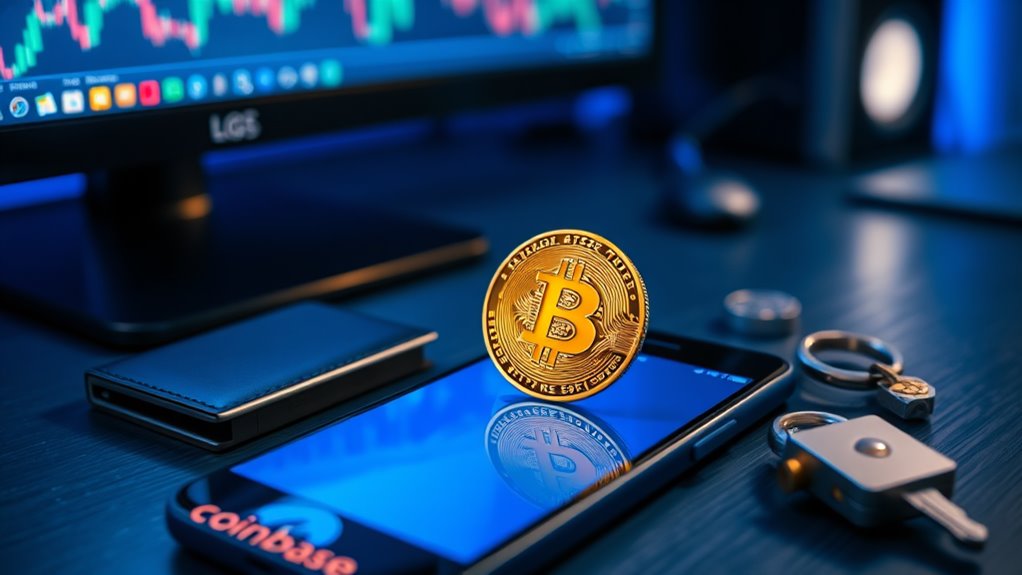






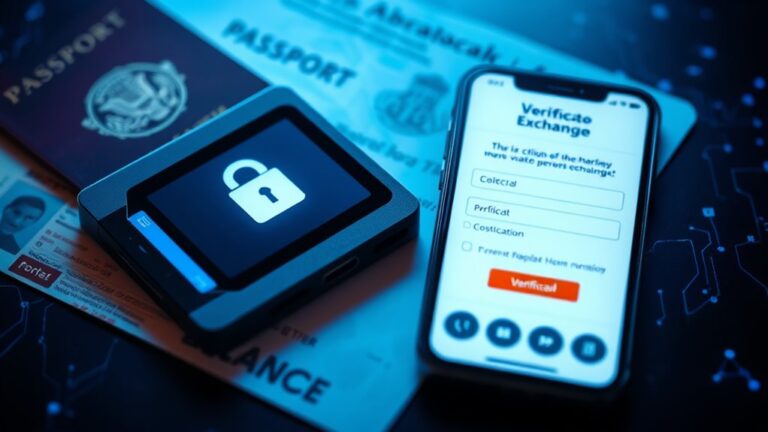
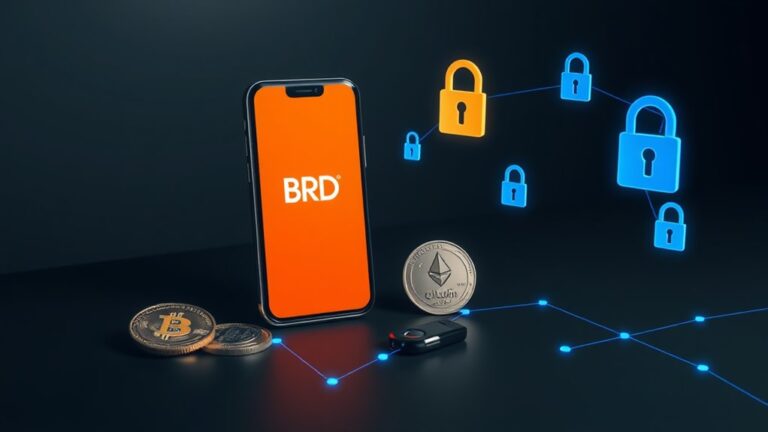

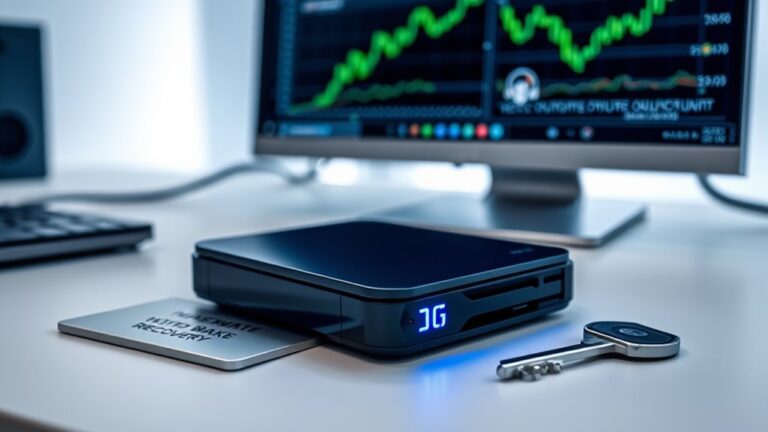

One Comment